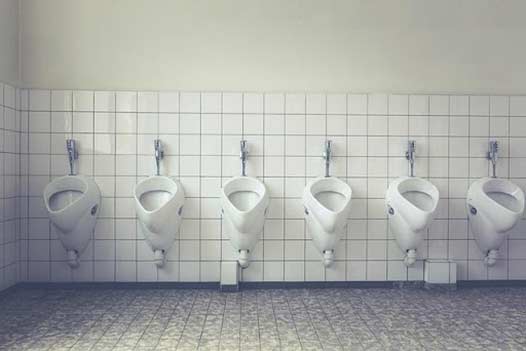
In a busy business kitchen and bathrooms, clogged drains can quickly become a common and frustrating problem. Not only do clogged drains disrupt day-to-day operations, but they can also lead to unhygienic conditions and unpleasant odors. Therefore, it is crucial to take preventative measures to keep your business kitchen and bathrooms’ drains flowing smoothly.
The Importance of Maintaining Drains
Proper drain maintenance is essential to avoid clogs and other plumbing issues in your business kitchen and bathrooms. Regular maintenance helps prevent costly repairs, ensures a clean environment, and keeps your plumbing system functioning efficiently. Neglecting drain maintenance can lead to major disruptions and inconvenience for both your staff and customers.
Identifying Common Causes of Clogged Drains
In order to effectively prevent clogged drains, it is important to understand the common causes. Here are some of the main culprits:
- Food waste: Food particles, grease, and oil can accumulate in kitchen drains, leading to clogs over time. It is important to implement proper waste disposal practices and avoid directly pouring cooking oil and grease down the drain.
- Foreign objects: Accidental or intentional misplacement of objects, such as utensils, wrappers, or personal hygiene products, can cause severe blockages in the drains. Educate your staff about proper waste disposal and the consequences of flushing or putting inappropriate items down the drain.
- Hard water deposits: In areas with hard water, mineral deposits can accumulate in the pipes and reduce water flow. Installing water softeners or using descaling agents periodically can help prevent this issue.
- Excessive toilet paper usage: Bathrooms often experience clogged drains due to excessive toilet paper usage or flushing non-flushable items. Install signs reminding users to only flush toilet paper and ensure that waste bins are readily available.
Preventative Measures
To maintain clear and flowing drains in your business kitchen and bathrooms, consider implementing the following preventative measures:
Regular Cleaning
Schedule routine drain cleaning to remove any build-up or potential clogs. This can be done using a commercial drain cleaner or a mixture of vinegar and baking soda. Regular cleaning helps keep the drains free from debris and ensures optimal water flow.
Install Drain Screens
Use drain screens or strainers in sinks and showers to catch food particles, hair, and other debris. These screens can be easily cleaned or replaced, preventing them from entering the drains and causing clogs.
Dispose of Waste Properly
Establish clear guidelines for staff regarding proper waste disposal. Provide designated bins for different types of waste, including food waste, recyclables, and general trash. Educate your staff on the importance of disposing of waste in the appropriate bins and not pouring oil or grease down the drain.
Regular Inspections
Periodically inspect the drains in your business kitchen and bathrooms to identify any signs of potential clogs or plumbing issues. Catching these problems early can prevent them from escalating into larger, more expensive repairs.
Professional Maintenance
In addition to regular self-maintenance, hiring a licensed commercial plumber for periodic maintenance is highly recommended. Plumbers have the expertise and tools necessary to thoroughly clean and inspect your business’s drains, ensuring their optimal performance.
Dealing with Clogged Drains
Despite taking preventative measures, clogs can still occur. It is important to address clogs promptly to prevent further complications. Here are some steps you can take to deal with clogged drains:
Using a Plunger
A plunger is a helpful tool in clearing minor drain clogs. Ensure that the plunger is completely submerged in water and create a tight seal around the drain opening. Plunge vigorously for a few minutes, and then release the pressure to see if the water drains. Repeat the process if necessary.
Using a Plumbing Snake
For more stubborn clogs, a plumbing snake or auger may be required. Insert the snake into the drain, rotating it as you push it forward. The snake will help break up the clog or retrieve any lodged objects. Use a bucket to collect any debris that comes out while retrieving the snake.
Chemical Drain Cleaners
Chemical drain cleaners should be used as a last resort and only if other methods have failed. These cleaners contain strong chemicals that can be harmful to both the environment and your plumbing system if not used correctly. Follow the instructions carefully and take necessary safety precautions, including wearing gloves and eye protection.
Seeking Professional Help
If you are unable to unclog the drain using the above methods or if the problem persists, it is best to seek assistance from a professional plumber. Plumbers have the necessary expertise and services such as hydro jetting to handle more complex clogs and ensure the long-term performance of your plumbing system.
To Conclude
Preventing clogged drains in your business kitchen and bathrooms is essential for maintaining a clean and efficient environment. By implementing regular maintenance, educating your staff, and taking prompt action when clogs occur, you can prevent costly repairs and keep your business running smoothly. Remember, a proactive approach to drain maintenance is key to avoiding unnecessary disruptions and ensuring the satisfaction of your staff and customers.

